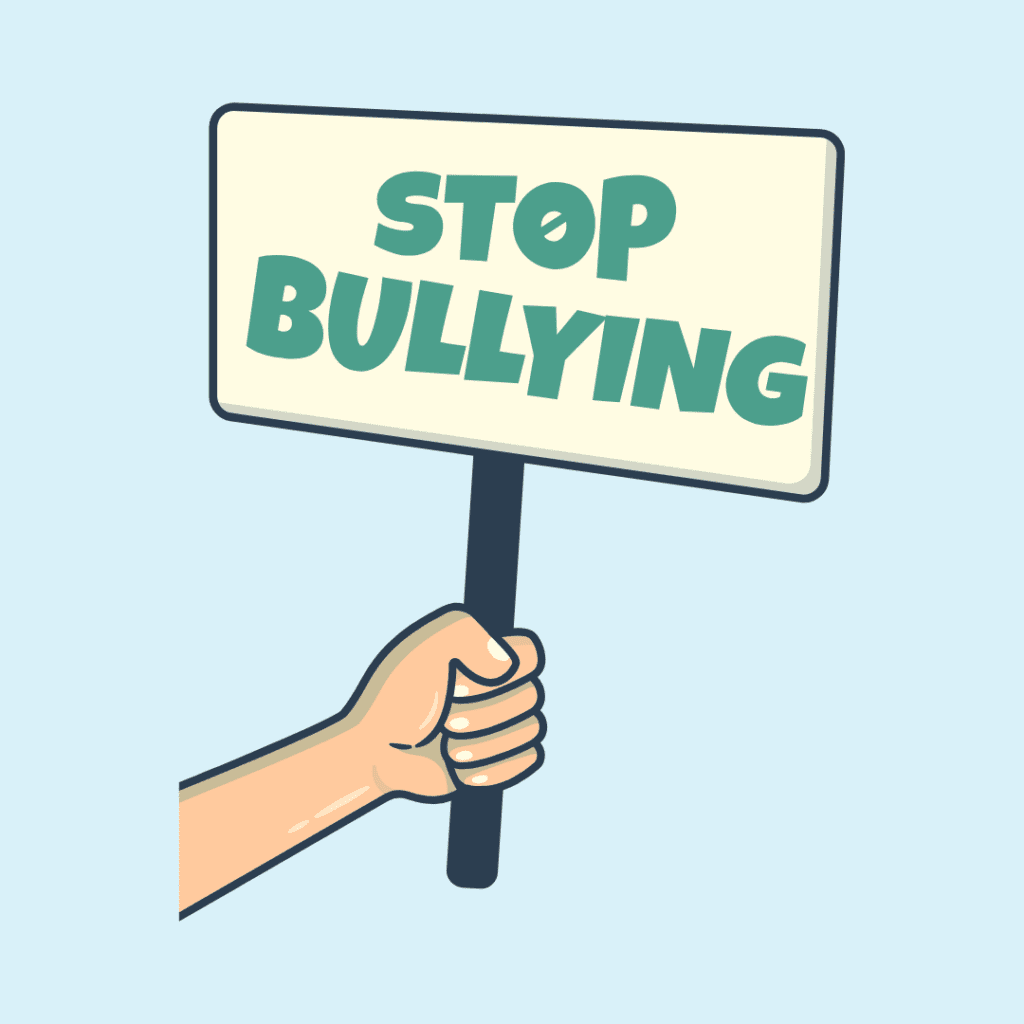Bullying Awareness Month is coming up in October. It is an important month to highlight anti-bullying programs and initiatives in your school. If your school doesn’t directly or effectively address bullying, it is a great time to open up conversations with your administration.
Bullying Awareness Month
[su_divider top=”no” style=”double” divider_color=”#5d94cd” link_color=”#000000″]
 I find that my students believe that any misunderstanding, problem, or conflict is bullying. I like to educate my students on what exactly bullying is and how it differs from conflicts, accidents, and misunderstandings. Then, I work on giving my students the tools to help manage these situations.
I find that my students believe that any misunderstanding, problem, or conflict is bullying. I like to educate my students on what exactly bullying is and how it differs from conflicts, accidents, and misunderstandings. Then, I work on giving my students the tools to help manage these situations.
– The Sunny Sunshine Student Support
[su_divider top=”no” style=”double” divider_color=”#5d94cd” link_color=”#000000″]
 At my school, we prepare for Bullying Awareness Month with lots of support and info-sharing through guidance lessons. I am at a middle school, so kids picking on each other often goes with the territory. I use a specific guidance lesson to introduce the bullying topic with definitions, and “what to do if” scenarios.
At my school, we prepare for Bullying Awareness Month with lots of support and info-sharing through guidance lessons. I am at a middle school, so kids picking on each other often goes with the territory. I use a specific guidance lesson to introduce the bullying topic with definitions, and “what to do if” scenarios.
Here is a link to the bullying guidance lesson if you’d like to check it out. Then, in the next guidance lesson on this topic, I take our school resource officer (police officer) in with me and he explains the legalities of bullying to students. I am in Texas, which just passed very strict anti-bullying interventions through David’s Law, so we spend a lot of time and effort on this topic during Bullying Awareness Month and year round.
[su_divider top=”no” style=”double” divider_color=”#5d94cd” link_color=”#000000″]
 One important perspective change I had about bullying came after hearing Ross Greene speak. He emphasized that in the bully-victim relationship, there were skills lacking on both sides. Since then, I coach others to think about bullies with skill deficits that need intervention, rather than as a bad kid. This month, consider intensive interventions that focus on social problem solving, empathy building, and impulse control.
One important perspective change I had about bullying came after hearing Ross Greene speak. He emphasized that in the bully-victim relationship, there were skills lacking on both sides. Since then, I coach others to think about bullies with skill deficits that need intervention, rather than as a bad kid. This month, consider intensive interventions that focus on social problem solving, empathy building, and impulse control.
Check out Ross Greene’s article B is for Bullies (and the Bullied) and advocate for policies that go beyond zero tolerance and create a school climate where bullying is solved and not managed.
-Laura from Social Emotional Workshop
[su_divider top=”no” style=”double” divider_color=”#5d94cd” link_color=”#000000″]
Check out our other posts on Bullying and share what you do in the comments!








